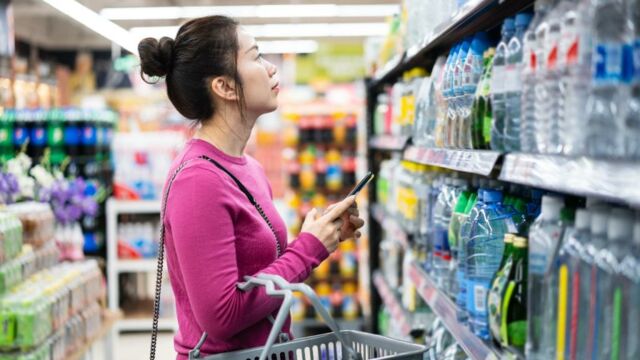In this day and age, we are much more health-conscious than we used to be. We spend our days bombarded by nutritional information and surrounded by a wide range of food and drink. Social media tells us to make healthy decisions for a better lifestyle while adverts promote delicious fast food and sugary treats. It's a minefield!
Discover our latest podcast
One thing that everyone agrees on is that water is essential for survival. There's a rough rule of threes: you can last 3 minutes without air, 3 days without water, and 3 weeks without food. Doctors recommend drinking enough water everyday to keep the body properly hydrated and working at full capacity. If your body does not get enough water, it can cause headaches, circulation problems or congestion.
But, it turns out not all water is equal. In fact, drinking carbonated water is reportedly bad for your health.
From weight gain to over-acidification
If you like drinking water, you should stick to stillwater. The carbonic acid in sparkling water can cause obesity or bad teeth. According to Grazia, a large intake of carbon dioxide causes the release of the hormone ghrelin.
This multiplies your appetite and makes you eat more than necessary. Furthermore, stomach problems can occur from overconsumption of fizzy water. When you drink carbonated beverages, your body is receiving more carbondioxide than usual. Your stomach reacts to this by bloating or stomach aches.
As much as you can, try to avoid drinks that contain carbonic acid. You can also try eating basic foods to protect your body against over-acidification.
How much water you should drink a day
The NHS recommends that 'people should aim to drink 6 to 8 cups or glasses of fluid a day'. If you're wondering whether that includes anything other than water, we have good news for you: it does! Water, lower-fat milk and sugar-free drinks, including tea and coffee all work.
Everyone's body works differently, but a good way to assess your hydration levels is to look at your pee. If you are drinking enough, your urine should be a clear pale yellow colour. If you are 'pregnant or breastfeeding, in a hot environment, physically active for long periods, ill or recovering from illness', you may need to drink more.
Finally, if you’re unsure about whether you’re drinking enough, you can check for symptoms that might tell you to drink more water.
Read more:
⋙ Woman reveals how she transformed her body for wedding, and it involves drinking a lot of water
⋙ Showering: Ending with cold water can lead to better health and mood, say experts
⋙ This woman's water bottle was 'poisoning' her for weeks: Are you making the same mistake?
Sources used:
NHS:Water, drinks and hydration
Independent: Fizzy water could be leading to weight gain, according to new research from Birzeit University















